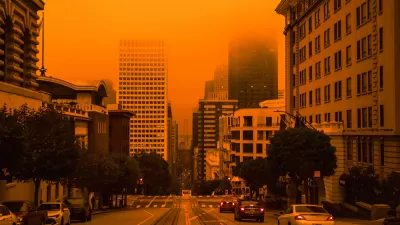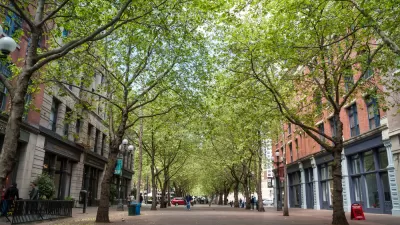This evening my wife, Beth Conover, will appear on a televised panel discussion on "Immigration and Sustainability" aired on Rocky Mountain PBS's Colorado State of Mind, hosted by Greg Dobbs. The panel includes former Gov. Dick Lamm, former Post columnist Diane Carman, and State Rep. Michael Garcia (D-Aurora). An mp3 of the program is already available at the following link.
This evening my wife, Beth Conover, will appear on a televised panel discussion on "Immigration and Sustainability" aired on Rocky Mountain PBS's Colorado State of Mind, hosted by Greg Dobbs. The panel includes former Gov. Dick Lamm, former Post columnist Diane Carman, and State Rep. Michael Garcia (D-Aurora). An mp3 of the program is already available at the following link.
My wife worked for Denver Mayor John Hicklooper and created the Greenprint Denver program. The topics being discussed are immigration and sustainability and to what extent these issues are linked. While, immigration is a real issue that will require new policies and creative thinking, I would argue it is the weapon of mass distraction when it comes to thinking about what needs to be done to make the U.S. more sustainable.
The League of Conservation Voters recently did an analysis of all the Presidential debates on national TV ("What Are They Waiting For?", League of Conservation Voters). In total, 2,679 questions were asked at Republican and Democratic debates. Of the, 2,679 questions, illegal immigration was the topic of 165 questions while the words global warming and climate change came up less than 25 times. The words "global warming" actually tied with questions about UFOs (three times). Arguing that immigration is an environmental issue while ignoring climate change is like focusing on the energy consumed by the light bulb in your refrigerator while keeping the door open.
As planners, we need to incorporate global warming into our work. The way we plan our cities and towns has a major impact on our energy footprint, whether it's creating communities that support alternative modes of transportation, building energy efficient homes and buildings, or planting trees and protecting open space as carbon sinks, planning impacts energy use for decades.
The Presidential Climate Action Project recently issued a 10 page Presidential Climate Action Plan, encouraging the next president to focus more seriously on climate change. The report states:
We must recognize that national climate policy and national energy policy are inextricably linked. The United States must make a deliberate and rapid transition away from carbon-based fuels, whether they come from the Persian Gulf or from domestic sources. We must turn with unprecedented speed to a future of energy independence, resource efficiency, renewable energy technologies and low-carbon fuels. Public policy must support only those technologies and resources that simultaneously stabilize the climate and enhance national energy security.
We must acknowledge that global climate change is much more than an environmental issue. It is a threat to national security because an unstable world is a breeding ground for extremism and terrorism. It is an urgent economic issue in which the price of action is much less than the costs of delaying, or doing nothing.
We must recognize not only the threat of climate change, but the enormous opportunities that we can capture by addressing it. The urgent worldwide demand for clean energy technologies is arguably the greatest entrepreneurial opportunity the United States has ever known. As the world's leading innovator, we can and should become the world's leading supplier of the technologies and products that will help all people in all nations achieve dignity and a decent standard of living, without contributing to climate change.
I couldn't agree more, and yet immigration is getting a disproportionate share of attention when it comes to discussions about national security, the environment, and sprawl. Smart Growth America conducted a study to investigate the linkages between sprawl, immigration, and population growth. Less than a third of sprawl development can be attributed to population growth (natural, legal immigration, and illegal immigration combined). Sprawl and its negative impact on the environment is mainly an issue of poor planning and the developer interest in building large lot single family houses. As planners and citizens we help keep the focus on issues of more long-term strategic importance.

Planetizen Federal Action Tracker
A weekly monitor of how Trump’s orders and actions are impacting planners and planning in America.

Maui's Vacation Rental Debate Turns Ugly
Verbal attacks, misinformation campaigns and fistfights plague a high-stakes debate to convert thousands of vacation rentals into long-term housing.

Restaurant Patios Were a Pandemic Win — Why Were They so Hard to Keep?
Social distancing requirements and changes in travel patterns prompted cities to pilot new uses for street and sidewalk space. Then it got complicated.

In California Battle of Housing vs. Environment, Housing Just Won
A new state law significantly limits the power of CEQA, an environmental review law that served as a powerful tool for blocking new development.

Boulder Eliminates Parking Minimums Citywide
Officials estimate the cost of building a single underground parking space at up to $100,000.

Orange County, Florida Adopts Largest US “Sprawl Repair” Code
The ‘Orange Code’ seeks to rectify decades of sprawl-inducing, car-oriented development.
Urban Design for Planners 1: Software Tools
This six-course series explores essential urban design concepts using open source software and equips planners with the tools they need to participate fully in the urban design process.
Planning for Universal Design
Learn the tools for implementing Universal Design in planning regulations.
Heyer Gruel & Associates PA
JM Goldson LLC
Custer County Colorado
City of Camden Redevelopment Agency
City of Astoria
Transportation Research & Education Center (TREC) at Portland State University
Jefferson Parish Government
Camden Redevelopment Agency
City of Claremont






























